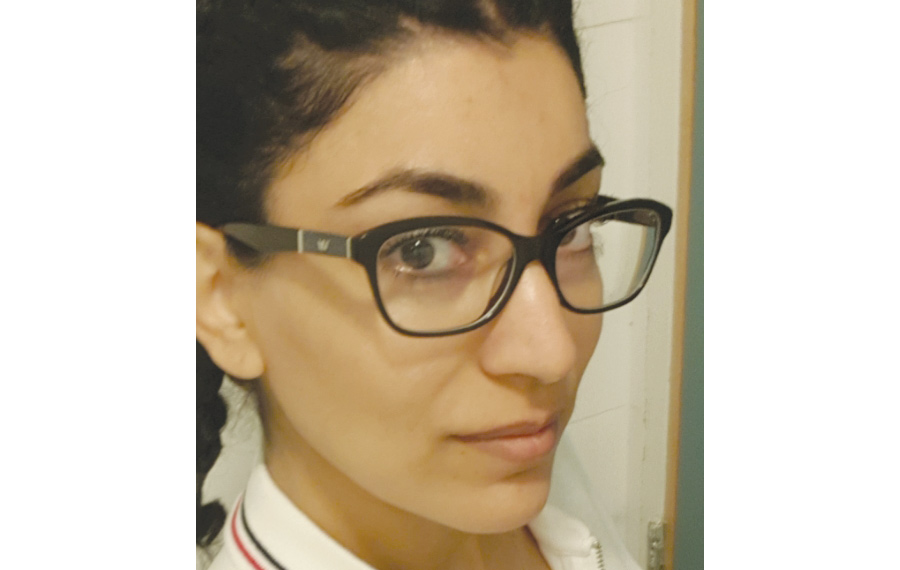 Ayat Abou Shmeiss
Ayat Abou Shmeiss Interviewing Ayat Abou Shmeiss isn’t always easy. She’s reluctant to speak about herself or elaborate on her achievements. She’d much prefer to speak about other women’s achievements —which is precisely why Abou Shmeiss does what she does.
Abou Shmeiss, 35, is on a one-woman mission to change the image of and people’s minds about Jaffa, the ancient Arab sister city to Tel Aviv. She does so by spreading the word about remarkable Arab women from Jaffa. Every week, Abou Shmeiss highlights a different resident in posts she uploads to various social media groups. Her posts have received thousands of likes and shares, and the ripple effect has been enormous, she says, completely altering how local men and women see themselves, along with the additional perks of job offers and TV interviews.
The idea first came to Abou Shmeiss after watching a TV series showing the lives of exclusively male Jaffa natives. The first person Abou Shmeiss highlighted was a woman by the name of Yusra, who was beset by a string of tragedies in her 30s, beginning with her husband’s murder. Not long after, both of her young sons were killed in a traffic accident. Yusra, a religious Muslim, decided to donate their organs, becoming one of the first Arabs in her community to do so.
“She is a pioneer. She showed the community that it’s OK to donate organs to save another life,” Abou Shmeiss said.
“The media is always focusing on the violence and murders in Jaffa, and I wanted to show the other side, a softer side in some ways but still showing very strong women.” — Ayat Abou Shmeiss
Another post featured Roukaya Almougrabi, a Muslim mother of three who became the unlikely winner of a world powerlifting championship in 2018. Almougrabi came to the public’s attention only after Abou Shmeiss wrote about her, prompting Israel’s news channels to reach out to Abou Shmeiss and resulting in Almougrabi giving a TED talk.
“The media is always focusing on the violence and murders in Jaffa, and I wanted to show the other side, a softer side in some ways but still showing very strong women,” Abou Shmeiss said.
Abou Shmeiss is also worthy of being featured in her posts. The married mother of one is a social activist who volunteers with at-risk teenage girls. Chiefly, though, Abou Shmeiss is a poet and the author of two books. Her first collection of poems, which won an Israel Ministry of Culture prize, deals with many of the themes Abou Shmeiss explores in her quest to bring Jaffa’s silent women to the fore. “I wanted to give a voice to these different identities. Being a woman, an Arab, a Muslim, an Israeli, a Palestinian,” she said.
All of Abou Shmeiss’ poems are written in Hebrew — a practical decision because Hebrew, and not her mother tongue, Arabic, was the language in which she became literate. Her poems are devoid of any flowery language, resulting in a clear and candid voice that seems to be utterly without guile.
“With my tongue I carry a basket full of languages silent as fish/ I place it on the countertop/ In your kitchen,” reads one poem.
So what’s next for Abou Shmeiss? She’ll always keep writing, she said, because that’s her lifeline. But when it comes to her project on women, she hopes to take it beyond Jaffa’s borders and begin featuring Arab women from all over Israel.























 More news and opinions than at a Shabbat dinner, right in your inbox.
More news and opinions than at a Shabbat dinner, right in your inbox.